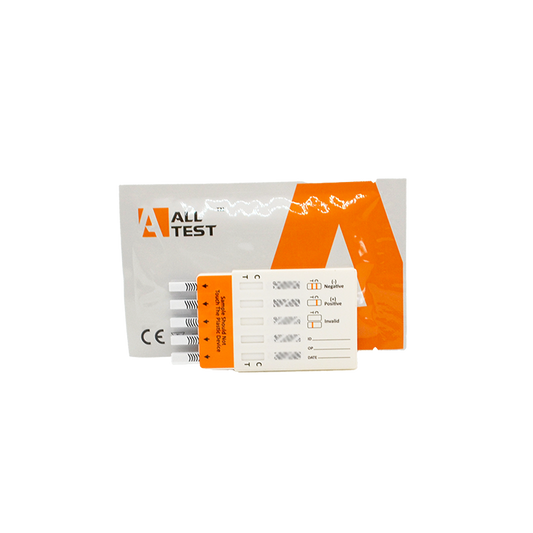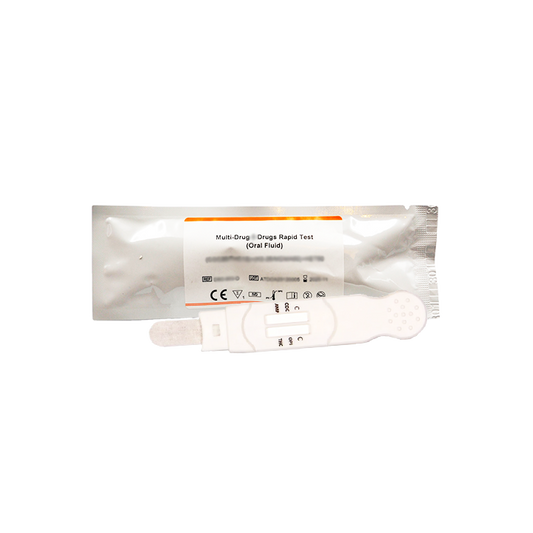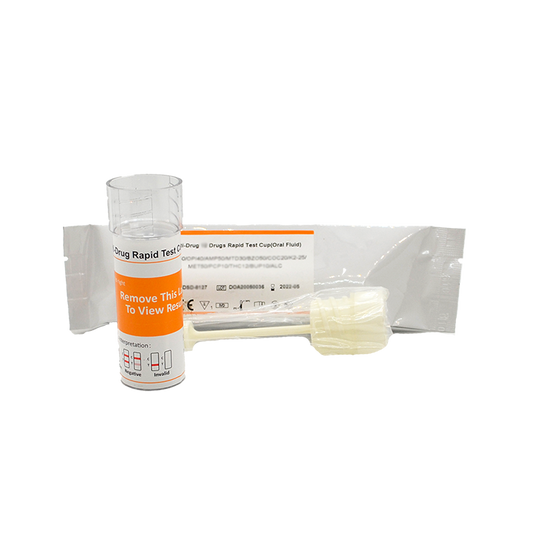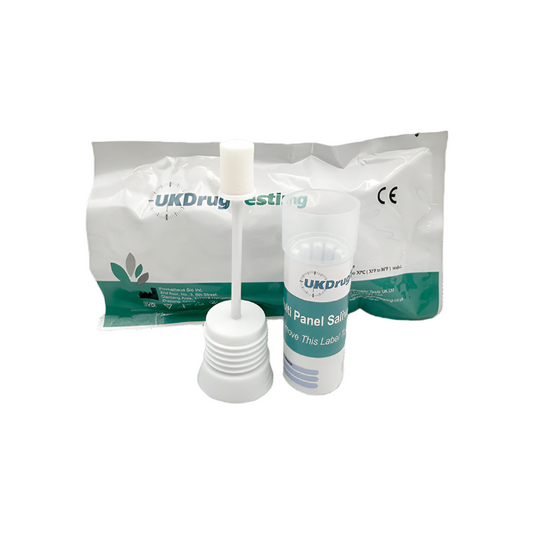Yes
In the UK, police officers do have the power to drug test you, but only under certain circumstances. Whether you're driving or simply stopped on the street, there are legal conditions that must be met for a drug test to take place. Here's what you need to know about when and how police can drug test you, the types of tests they use, and what happens if you test positive.

Saliva Drug Test Barrel (UKDrugTesting)
From £7.95
When Can Police Drug Test You?
There are two main situations where UK police can carry out a drug test:
1. If You’re Driving or in Charge of a Vehicle
Police have the power to stop your vehicle and carry out a roadside drug test if they suspect you are driving under the influence of drugs. This includes illegal substances such as cannabis or cocaine, as well as certain prescription medications that can impair your ability to drive safely such as strong painkillers or sedatives.
Officers do not need hard evidence to carry out a roadside test. Reasonable suspicion is sufficient this can be based on factors such as:
- Erratic or dangerous driving
- The smell of drugs
- Red or glazed eyes
- Slurred speech or unusual behaviour
While a breathalyser test for alcohol is more commonly used in routine stops, police are increasingly using roadside drug testing kits, especially where there are clear signs of drug use.
If you have a history of drug-related offences, or are known to police for previous involvement with drugs, you may be more likely to be stopped, searched, or tested during traffic stops.
Refusing a drug test, or failing one, can result in arrest and further testing at the station. Convictions for drug driving carry serious penalties, including a driving ban, a criminal record, and even imprisonment in severe cases.
2. If You’re Arrested for a Trigger Offence
If you're arrested for a crime such as burglary, robbery, or certain public order offences, you may be required to take a drug test at the police station, even if you weren’t driving.
What Drug Tests Do Police Use?
There are two main types of drug tests used in the UK:
Roadside Saliva Test (Oral Swab) 🚗
This is the most common on-the-spot drug test used during traffic stops. It involves a saliva swab and gives results in minutes. It tests for:
- Cannabis (THC)
- Cocaine
These are the two most common drugs detected in roadside testing.
If you test positive, you may be arrested on suspicion of drug driving and taken to the police station for further testing.
The cannabis test on these devices is unlikely to pick up immediate or long past cannabis use. Its most likely period for detection is 2-8 hours after smoking, with cannabis being notoriously bad for saliva testing.
Urine or Blood Test at the Police Station
If arrested, you can be asked to give a blood or urine sample. This is a more thorough test and can detect a wider range of drugs, including:
- Opiates (e.g. heroin)
- Benzodiazepines (e.g. diazepam)
- Amphetamines (e.g. speed)
- Methadone
- MDMA (ecstasy)
- Ketamine
- LSD
- Prescription drugs that impair driving
What Happens If You Test Positive?
If you test positive during a roadside drug screening, the police will arrest you and take you to the station for a full evidential blood test. This second test is more accurate and is used to determine the actual concentration of drugs in your system, which will be compared against the legal limits set by UK law.
The UK has specific legal thresholds for drug-driving. How much cocaine/cannabis can you have in your system before its illegal?
| Drug | Legal Limit in Blood (per litre) |
|---|---|
| THC (cannabis) | 2 µg/L |
| Benzoylecgonine (cocaine metabolite) | 50 µg/L |
These thresholds are very low, effectively creating a zero tolerance policy.
If the lab confirms drugs in your system above the legal limit, you could be charged with drug driving, even if you weren’t acting impaired.
Legal Consequences:
- Minimum 1-year driving ban
- Unlimited fine
- Up to 6 months in prison
- Criminal record
Repeat offenders or those involved in accidents could face harsher penalties.
Trace Amounts and Prescription Medication
Many people worry about trace amounts of drugs showing up — especially cannabis, which can linger in the system for days or even weeks. The law sets very low thresholds, so even tiny amounts might trigger a positive.
However, if you're taking prescription medication, you're not automatically breaking the law. The key is whether:
- You’re taking it as directed.
- It doesn’t impair your ability to drive.
If both are true, you're likely protected — but it’s best to carry proof (e.g. prescription label) and speak to your doctor if you’re unsure.
Things to Keep in Mind
- Police cannot randomly drug test you on the street without legal grounds.
- If you refuse to take a test when required, it’s treated the same as failing it.
- Roadside drug testing is becoming more common, especially during traffic stops or after accidents.
- Breathalysing after an incident involving a collision is standard procedure, so drug testing may follow suit in the future.
Final Thoughts
Police drug testing in the UK is targeted, not random. If you’re driving and appear impaired — or you’ve been arrested for a serious offence — you could be tested on the spot or at the station. DrugWipe saliva tests are most common at the roadside, and they focus mainly on cannabis and cocaine, though lab tests go further.
Even small traces of drugs can lead to charges if they exceed legal limits. If you’re using prescription medication, stay informed and drive responsibly. When in doubt — ask your doctor and know your rights.





